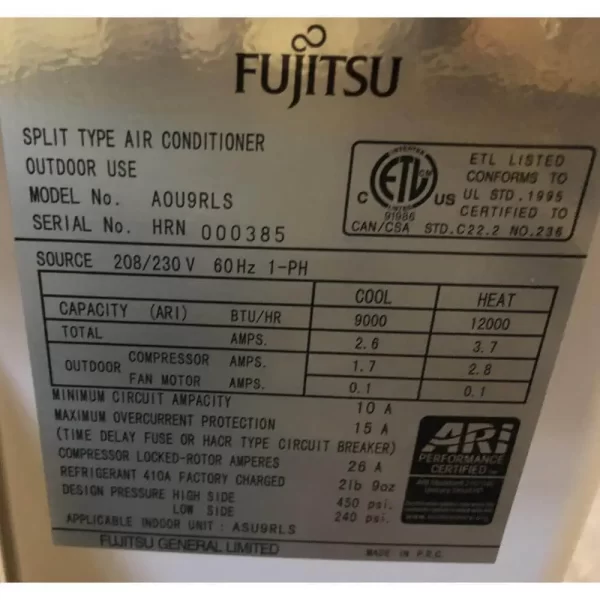What Is a BTU? and Why Does It Matter?
Have you ever noticed the term “BTU” when shopping for heating and cooling systems? Do you know what it stands for and why it matters? Heating and cooling systems can range from inefficient to highly efficient based on their BTU rating. In this blog post, we will be discussing what BTUs are, how to calculate your heating and cooling needs, and why it’s important to understand the BTU rating of your HVAC system.

What Is a BTU?
BTU stands for British Thermal Unit. It’s the amount of heat required to raise the temperature of one pound of water by one degree Fahrenheit at sea level. This unit of measurement is commonly used in the HVAC industry to determine the heating or cooling capacity of an HVAC system. The higher the BTU rating, the more heat an HVAC system can produce or remove from a space. It’s important to note, however, that the BTU rating alone isn’t enough to determine an HVAC system’s efficiency.
Calculating Your Heating and Cooling Needs
In order to ensure maximum efficiency and comfort within your home, it’s crucial to determine the heating and cooling needs of your space. Getting a clear understanding of the specific heating and cooling requirements of your household can help you make informed decisions about your HVAC system. Central to this process is the BTU rating, which represents the amount of energy required to raise a pound of water to one degree Fahrenheit. Determining your home’s heating and cooling needs based on factors such as square footage, ceiling height, insulation, and local climate allows you to make accurate adjustments to your HVAC system’s BTU rating, leading to improved performance and reduced energy costs. By taking the time to assess your home’s unique heating and cooling needs, you can ensure that your HVAC system is operating at peak efficiency while keeping your family comfortable throughout the year.

Why Does It Matter?
Understanding the BTU rating of your HVAC system is essential in choosing the most efficient system for your home. Choosing an HVAC system with too high of a BTU rating for your home can result in higher utility bills and less efficient heating or cooling. On the other hand, choosing an HVAC system that’s too low of a BTU rating can result in your home feeling cold or hot even when your system is running at maximum capacity. Understanding the BTU rating’s significance can help you make an informed decision when purchasing an HVAC system and ensure that you’re choosing the most efficient one for your needs.

Factors Affecting Your BTU Rating
Several other factors can impact an HVAC system’s BTU rating, including insulation, windows, and ceiling height. A well-insulated home will require a smaller capacity HVAC system than a home with limited insulation, as insulation helps to regulate your home’s temperature. Similarly, a home with large windows will require a higher BTU rating than a home with small windows. Finally, a home with high ceilings will require a higher BTU rating than a home with low ceilings as heat rises. It’s essential to consider these factors when selecting an HVAC system to ensure that you’re choosing a system that matches your home’s specific needs.
Understanding the BTU rating of your HVAC system is essential to choosing an efficient system that will keep your home comfortable throughout the year while helping to lower your energy bills. By taking the time to calculate your heating and cooling needs and considering other factors such as insulation, windows, and ceiling height, you can make an informed decision when selecting an HVAC system. So, next time you’re shopping for a heating and cooling system, keep BTUs in mind and remember that the right HVAC system can help you stay comfortable and save money.


